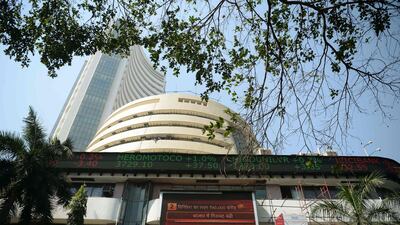Global fund managers are applauding a move by India to deregulate the prices of bonds sold by the country’s states, which could spur overseas interest in the $350 billion market even if there are short-term losses.
The liberalisation will allow for a greater differentiation among the states, which have widely varying levels of growth, debt and wealth, overseas investors including Aberdeen Asset Management Asia say.
Securities sold by the nation’s 29 states will be valued at market prices, the Reserve Bank of India said at its policy meeting last week, discarding a long-standing rule that mandated adding a 25-basis point mark up over a sovereign bond with the same tenor.
While foreigners bought $23 billion of federal bonds in 2017, the highest in three years, they have been wary of provincial notes because of inadequate data on the health of their public finances. Global funds have used just 12 per cent of the 348 billion-rupee limit allotted to the securities, according to data compiled by the National Securities Depository.
“The move is positive in that the differentiation could lead to spreads that better reflect the underlying fundamentals,” Stuart Ritson, Singapore-based head of Asian rates and foreign exchange at Aviva Investors, said in an interview. “And, over time, this has the potential to lead to greater fiscal discipline.”
To nudge lenders to get their debt rated, the RBI set a lower margin requirement for rated state notes used as collateral for borrowing. Indian states have been large borrowers to fund farm loan waivers and pay for their staff, and the interest burden is set to push them to pile on more debt to plug budget deficits, according to HSBC Bank.
______________
Read more
Ikea set to adapt as it opens first India store
Further India rate hike more likely as inflation surges
______________
They are due to sell up to 1.3 trillion rupees of securities in the three months ending June, a 40 per cent jump over the year-ago period. Several states were unable to sell debt at recent auctions as investors demanded higher yields.
The new valuation method, though, could be another pressure point for borrowers at a time when the benchmark yield is near a 3 1/2-year high. The reason: it dulls the appeal of state debt to investors seeking immediate trading profits and takes away from state-run lenders -- the top holders of federal debt -- an avenue to mask losses following a surge in yields.
“It has implications on demand for state bonds as it was a quick way to show treasury profits,” said R Sivakumar, head of fixed income at Axis Asset Management. “If the market was to fairly value such debt, we could see a reduction in demand.”
Aviva and Aberdeen, both of whom have an exposure to local state debt, said they would adopt a wait-and-watch approach.
“Only when proper credit differentiation happens will it be more attractive for foreigners,” said Lin Jing Leong, an investment manager at Aberdeen Standard Investments in Singapore. Valuations are attractive but Aviva will look for more macro stability and the onshore bond market before adding to positions, Mr Ritson said.

